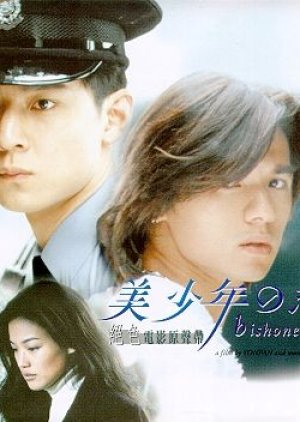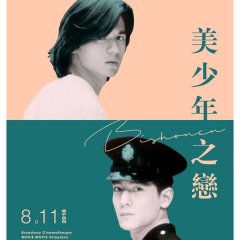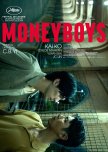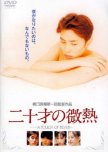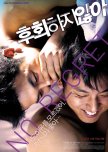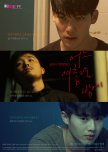- Português (Brasil)
- Türkçe
- English
- magyar / magyar nyelv
- Título original: 美少年之戀
- Também conhecido como: 美少年の恋 , Bishonen no Koi , Mei shao nian zhi lian
- Roteirista e Diretor: Yon Fan
- Gêneros: Romance, Drama
Elenco e Créditos
- Stephen FungJetPapel Principal
- Shu QiKanaPapel Secundário
- Terence YinK.SPapel Secundário
- Kenneth Tsang[Sam's father]Papel Secundário
- Man Chiao Wang[Sam's mother]Papel Secundário
Resenhas

ACTING/CAST: Well, there were a lot of cute actors and they did a good job. They did not shy away from the myriad of make out scenes and all that kissing.
MUSIC: Standard.
REWATCH VALUE: Nuh uh. So slow. Did I mention it's a tragedy? OK, I realize this came out 10 years ago and was probably pretty progressive for its time.
OVERALL: 100% Guaranteed to cure insomnia and the desire to live! Act now while supplies last!
Esta resenha foi útil para você?

Esta resenha pode conter spoilers
know this was made in 1998 and most of the actor's were newbies (which shows) donno about the director / producer - but this was lacking. the Narrator was needed cause without her "hand-holding" = telling us what was going on, we would be clueless. usually in good movies the acting is enough to convey the plot (sometimes even without words) so donno whom to blame, as this turns not only boring, but unbelievable. calling this a love story is a reach, i didn't get anything but attraction from Jet - heck the dude was more interested in his own image in any reflective surface, then in Sam. same goes for Sam - he wasn't a narcissist but he wasn't in-love either, or the plot wasn't thought out. cause from them meeting (Sam suddenly bumping into Jet - nothing to do with that add) to suddenly jumping to Jet becoming part of the family, sitting in on every meal - was weird. and the woman on the poster is very misleading, she nothing but a minor character. that was Ah Chin "place" - heck even KS would be logical, as there is No fiancée / gf - they both a "beard" for each other...Sam for sure not a good-guy, the dude pimped out his then bf Ah Chin (who was a freakin clerk) but cause Sam/Fai was funding his lover (the one he was cheating with) on the side, KS (who was a freakin man-whore, ironic saying that here) and as clerk's neither he nor his bf earned enough to sponsor the rising star, K.S - so Ah Chin goes and sells himself and that not enough so Sam does the same - and then (cause he has enough? idk) he bails not even a goodbye, leaving Ah Chin heart-broken and living a pretty bleak life.
most of this movie Sam treats Jet like his new buddy (even though the dude is gay and not even confused about it, considering Kana), while Jet keeps hustling at night and supposedly acting love sick in the day idk - until the 3 finally meet. as Ah Chin talks about his fated-ex Fai and Jet refers to his new infatuation as Sam, so when the 3 come face to face - and the roommates "get" they talking about the same guy. Sam bails (which it typical of him) only to have Jet follow (and considering everything he gets up too, i get why he is fast to forgive and understand), finally confessing to their sexual attraction - the combustion takes place in Sam's house and of course someone walks in and then quietly leaves.
frantic Sam keeps his cool, trying to understand which of his parent knows - and when he sees his fathers quite destress he goes into his room and dots a line to Jet ?!? i guess that someone kind of explanation or "goodbye" note, but found it lacking considering the magnitude of his choice - felt really bad for his parents. i get that in that day and age, how hard being gay was.. but considering everything it just fell flat - even Jet reading the letter was like a meeh moment - cause i didn't get the undying love, yearning that existed between Jet and Sam. Ah Chin was more infatuated with Fai, heck KS was more into Sam then Jet was. so maybe this should be "forgiven" for its imperfections, cause of the time it was made - but seen short movies with less budget but better acting, that conveyed more - idk, not my cup of tea ....
Esta resenha foi útil para você?

